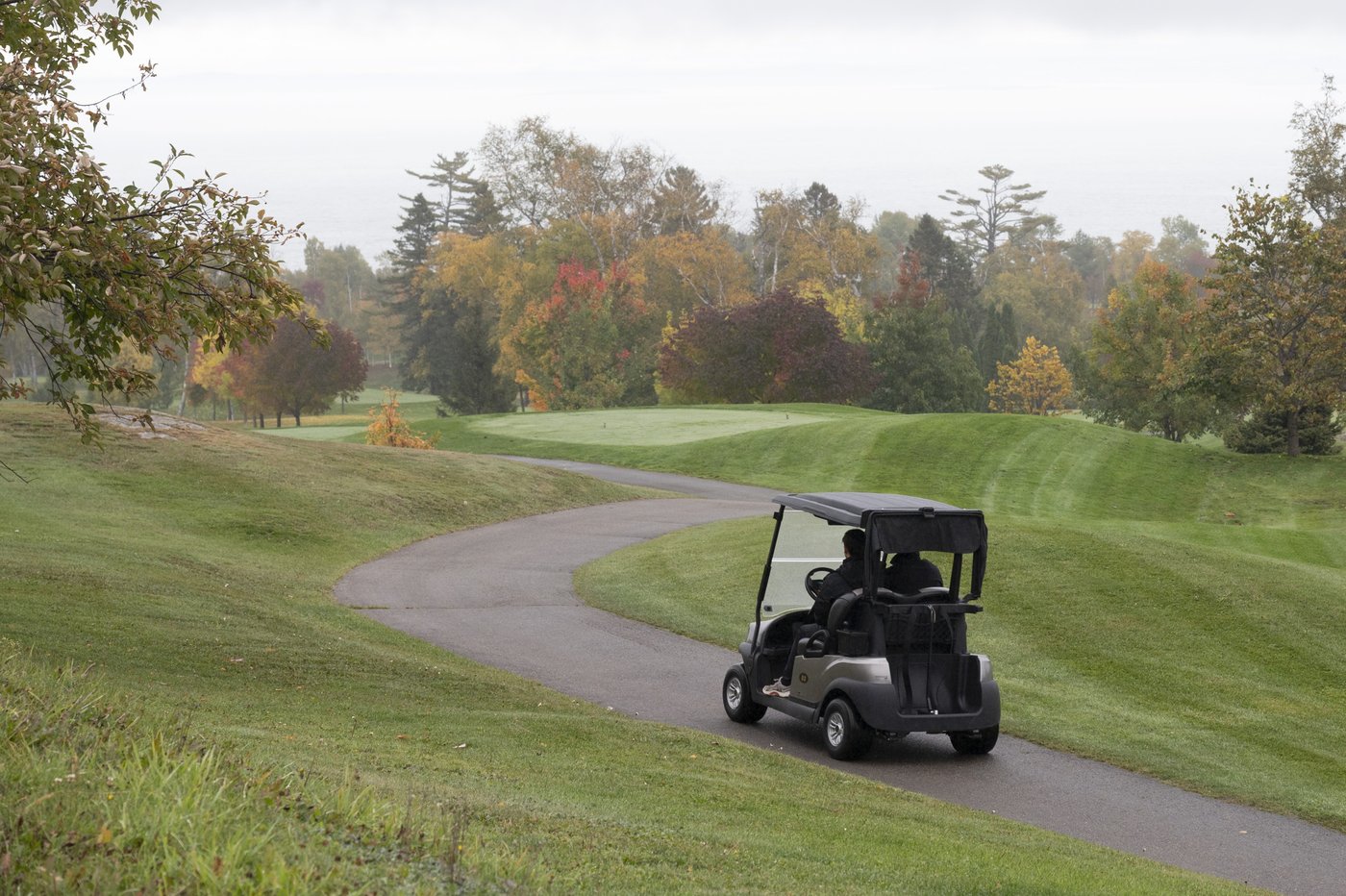
How to Stop a Golf Cart from Squeaking: A Comprehensive Guide
Golf carts are a great way to get around on the course, but the last thing you want is a squeaky cart that disrupts your ride. A squeaking sound can be an annoying problem, but it’s usually fixable. In this article, we’ll guide you through the steps to stop your golf cart from squeaking, helping you identify the source of the noise and apply the right solutions to fix it. From suspension to wheels, we’ll cover it all.
Why Do Golf Carts Squeak?
Squeaking in golf carts is typically caused by friction between parts that should be moving smoothly. When these parts become worn, loose, or insufficiently lubricated, they can cause the cart to squeak. Common culprits include the suspension system, wheels, body panels, and braking system. By identifying the source of the noise and addressing it, you can enjoy a quieter, smoother ride on your golf cart.
Step 1: Identify the Source of the Squeak
The first step in eliminating squeaks is identifying where the noise is coming from. Carefully listen for the squeak while moving the cart forward and backward. This will help you pinpoint the location of the sound. There are several places to check:
- Suspension: The suspension system is a common source of squeaking in golf carts. When the suspension components (like bushings, shocks, or springs) wear down or lack lubrication, they can create noise as they move.
- Wheels: Squeaks can also come from the wheels if they are not properly lubricated or if the wheel bearings are worn out. Pay close attention to the area around the wheel hubs and axle.
- Body Panels: Sometimes, squeaks can originate from the body panels themselves. Loose panels or metal rubbing against metal can cause irritating squeaks during movement.
Step 2: Lubrication
Once you've identified the source of the squeak, the next step is to lubricate the affected parts. Lubrication helps reduce friction and can often eliminate squeaks. Here's what you can do:
- Use Silicone Spray: For most parts, including suspension components and body panels, a silicone-based spray is a good option. It’s gentle on most materials, provides smooth lubrication, and won’t attract dirt or grime like some other lubricants.
- Apply White Lithium Grease: For areas with more significant friction, such as wheel hubs or areas with moving metal parts, white lithium grease works wonders. It’s long-lasting and will help reduce squeaking in high-stress areas.
- Avoid WD-40: While WD-40 is a popular choice for many lubrication tasks, it’s not ideal for stopping squeaks. WD-40 is a solvent, not a lubricant, and it can attract dust and dirt, which can make the squeak worse over time.
Step 3: Tighten and Adjust Components
If lubrication doesn’t completely eliminate the squeak, the next step is to check for any loose components. Over time, parts on your golf cart can loosen and start to rub together, causing noise. Here's what to look for:
- Check Bolts and Screws: Inspect the bolts and screws in the suspension system, wheels, and body panels. Tighten any loose bolts or screws to ensure that components are secure and not rubbing against each other.
- Adjust the Brakes: The brakes can sometimes cause squeaks, especially if they’re misaligned or if the brake pads are worn. Adjust the brake components or replace the brake pads if necessary to stop the squeak.
- Consider Bushings and Bearings: Worn-out bushings and bearings in the suspension or wheels can lead to squeaking. If you find that these parts are damaged, replacing them can solve the problem.
Step 4: Seek Professional Help
Sometimes, squeaks persist despite your best efforts, which may indicate a more serious issue. If you're dealing with worn-out suspension parts or more complex brake problems, it may be time to consult a professional. Here's when to seek expert help:
- Suspension Wear: If the suspension system is badly worn, it may need replacement parts. A mechanic can inspect the system and replace damaged springs, shocks, or bushings to restore the smooth performance of your cart.
- Brake Issues: If the squeak is coming from the brakes, it’s important to have them checked by a professional. Worn-out brake pads, rotors, or damaged components could be the cause of the noise.
- Corrosion: Corrosion in metal parts, especially in the suspension or wheel hubs, can lead to squeaking. A mechanic can clean and replace the corroded parts to prevent further damage.
Additional Tips for Preventing Squeaks
Prevention is always better than cure, so here are a few tips to keep your golf cart squeak-free in the long run:
- Regular Maintenance: Regularly check and lubricate your golf cart’s moving parts, including suspension components, wheel bearings, and the brakes. Keeping these parts well-maintained can prevent squeaks from developing in the first place.
- Store Your Golf Cart Properly: When not in use, store your golf cart in a dry, shaded area to prevent moisture buildup that can lead to rust and corrosion. This will help maintain the integrity of the components and prevent squeaks caused by rusted parts.
- Use Quality Parts: If you need to replace parts on your golf cart, make sure you’re using high-quality replacements. Cheap or low-quality parts are more likely to wear out quickly and cause squeaks or other problems.
Conclusion
Squeaking in a golf cart can be annoying, but with the right approach, it’s a problem that can often be fixed easily. By identifying the source of the squeak, applying the proper lubricants, tightening loose components, and seeking professional help when necessary, you can ensure a smooth, quiet ride.
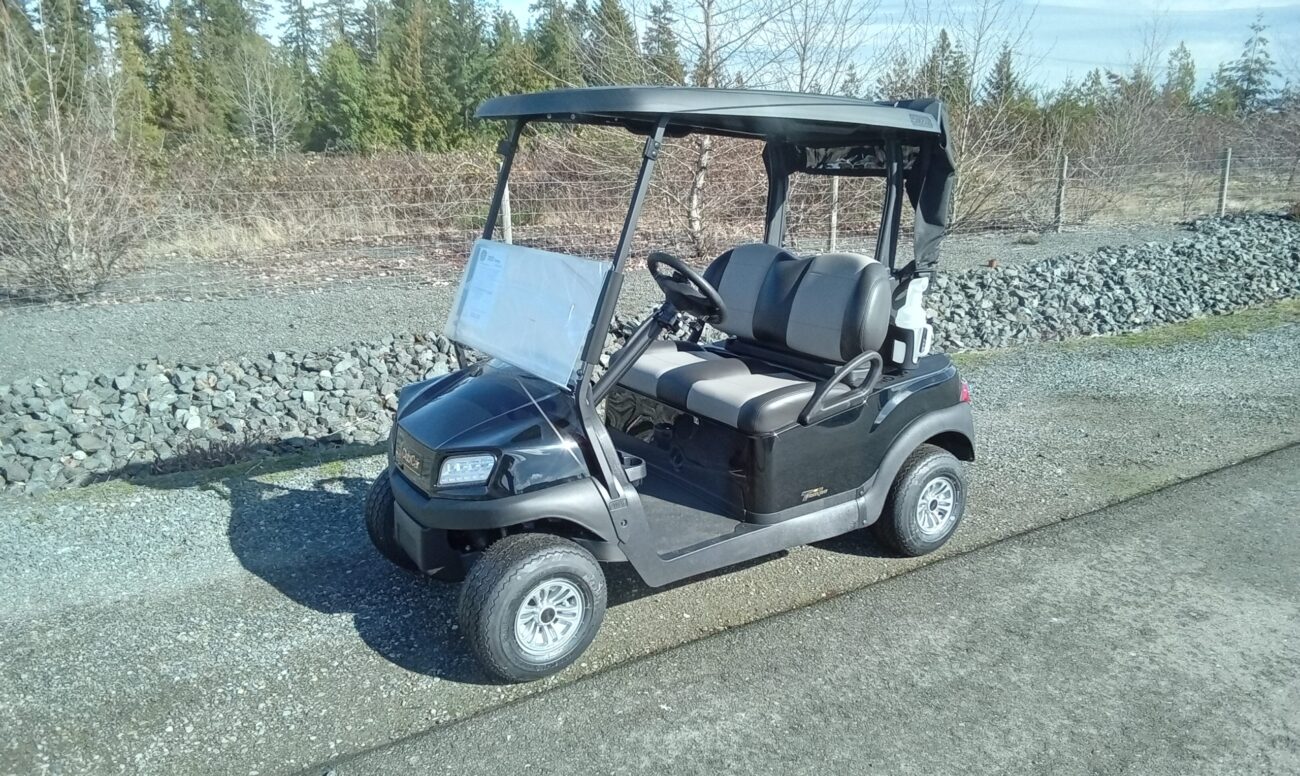
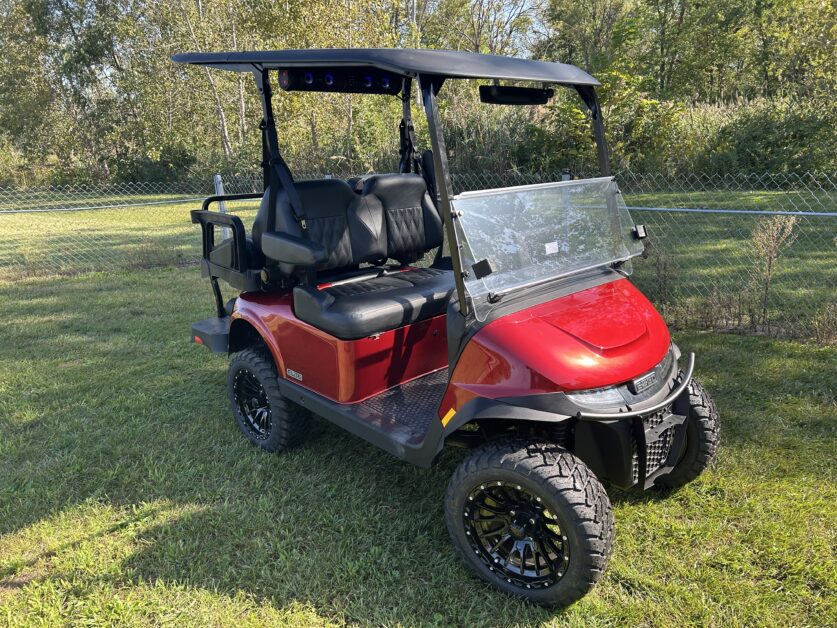
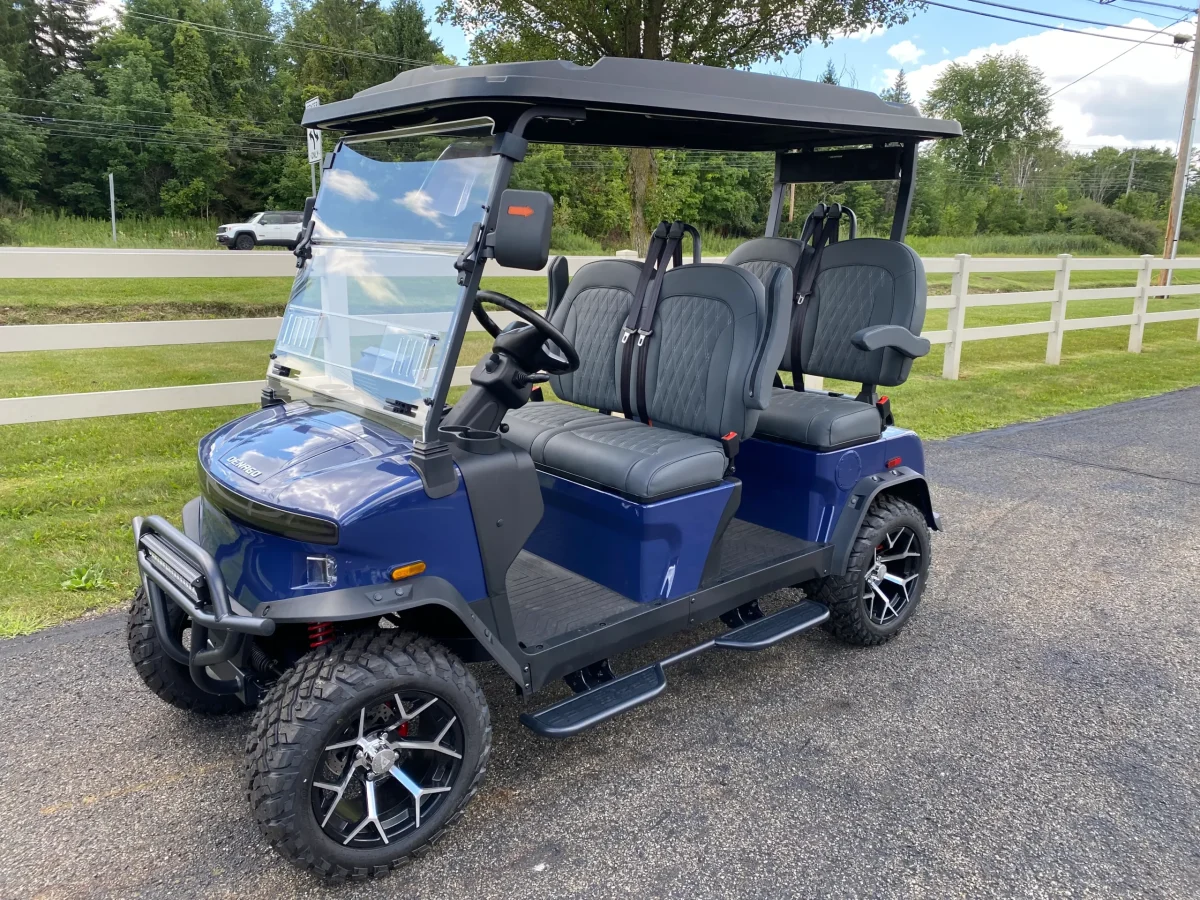
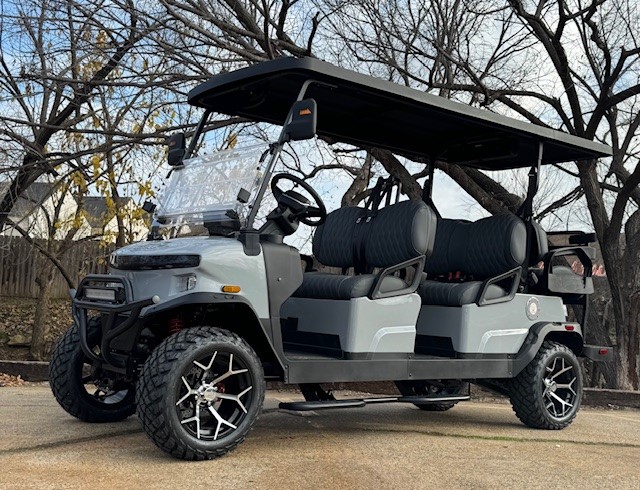
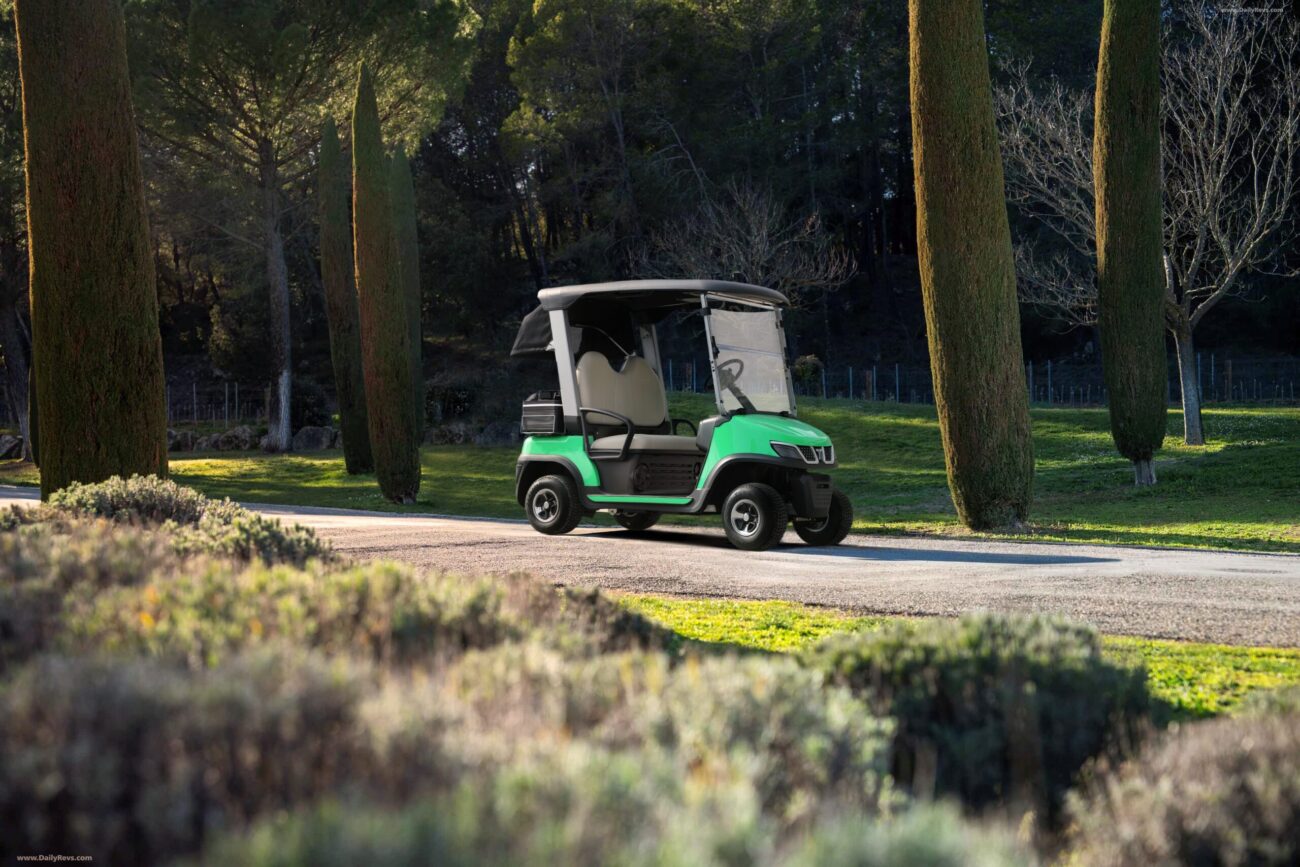
Add a review
Your email address will not be published. Required fields are marked *